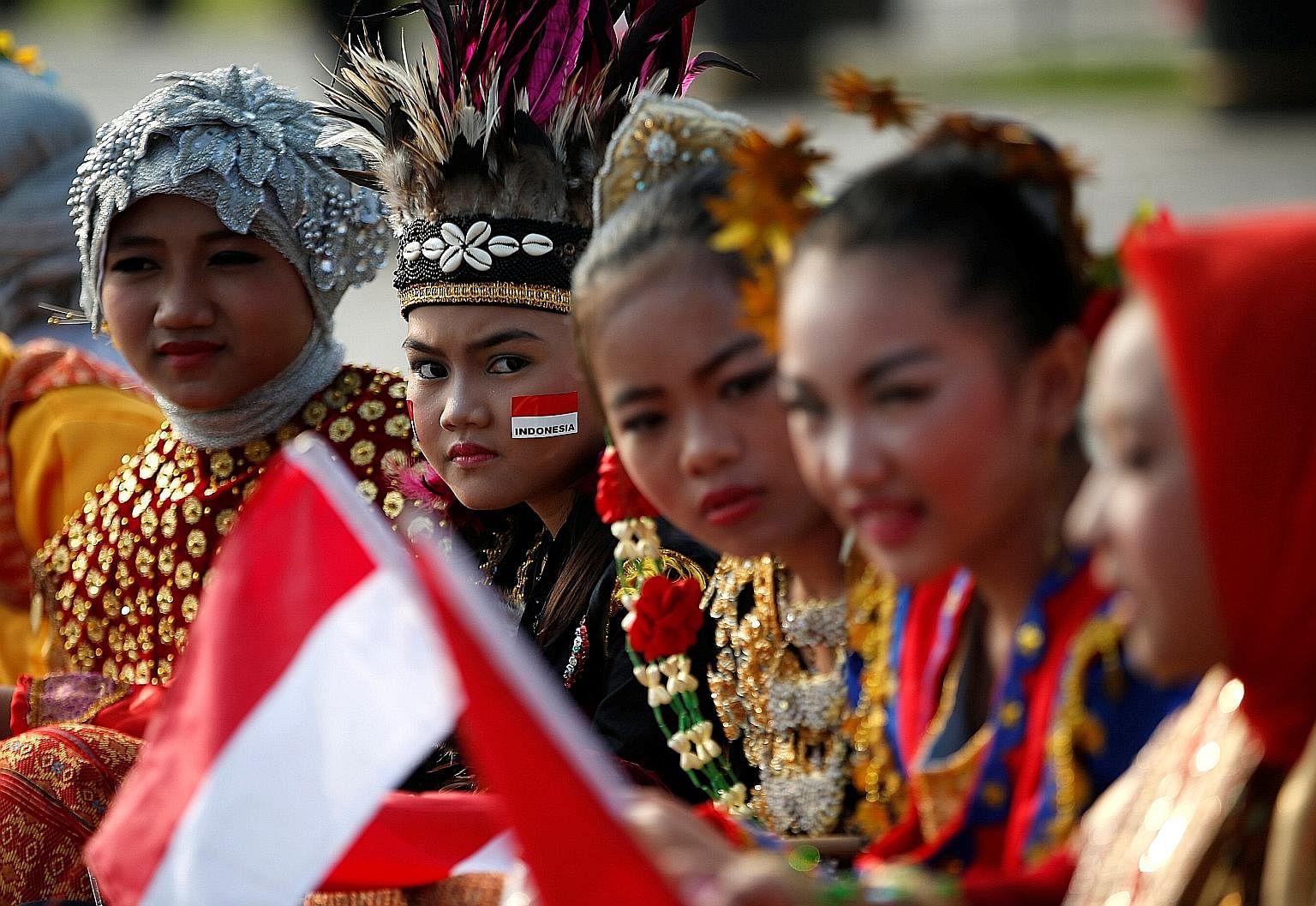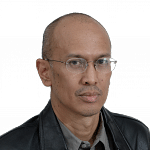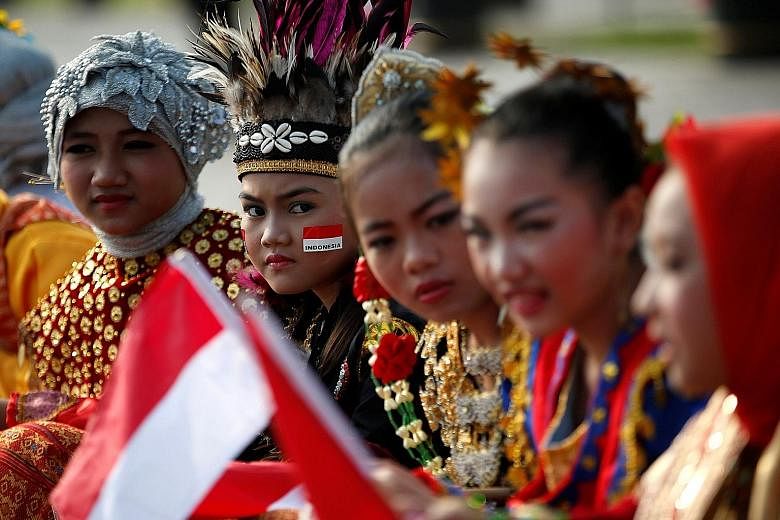While his rivals tap into pro-Islamic sentiments for political gain even though they threaten to tear apart Indonesia's social fabric, President Joko Widodo staged a fashion show of force in a call for unity in his annual pre-Independence address: He and Vice-President Jusuf Kalla showed up at Parliament wearing each other's traditional attire.
Mr Joko is Javanese but wore Bugis garb. Mr Kalla is from Sulawesi but donned a Javanese beskap suit for the occasion.
Their style choices were not just a folksy showcase of the diversity of a country that encompasses 300 distinct ethnic groups and 742 different languages and dialects. Rather it was seen as a sign that, despite on-and-off tension between them over their political differences, the President and his No. 2 are of one mind when it comes to protecting Indonesia's pluralism, diversity, freedom of religion and racial harmony.
Such a show of unity is important because, even as Indonesia tackles the perennial scourge of terrorism, drugs and corruption, and works to alleviate poverty and grow its economy, it is the rise of racial and religious strife that keeps people awake at night.
All three of Mr Joko's speeches on Wednesday were dominated by the theme of unity. Analysts say that while the President remains focused on building a solid economy - a key campaign promise - he now also has to bring a country of 250 million people together, or watch radicals rip it apart.
"We must make history as the foundation to look into the future. The very important lesson from our nation's history is the freedom we can seize, we can achieve, we can proclaim because all the nation's children are able to unite and work together," Mr Joko said in his speech on Wednesday. "But I am sure that united, we will be able to face all that, because our nation is a great nation, our nation is a tested nation, our nation is a fighter."
Less tolerant Islamic views have infiltrated Indonesian culture since Mr Joko's ally, former Jakarta governor Basuki Tjahaja Purnama, was ousted by the opposition pairing of Mr Anies Baswedan and Mr Sandiaga Uno in May's gubernatorial election.
Critics had said Mr Baswedan, who was Mr Joko's education and cultural minister until he was sacked last year, rode to victory on a wave of religiosity fuelled by protests against Basuki for blasphemy against Islam.

That was a bold sign of Indonesia's tilt towards political Islam, observers say. Basuki, the Christian-Chinese incumbent who was once a shoo-in at the election, had not only lost by a large margin but was jailed weeks later for insulting Islam.
Mr Joko's emphasis on the pluralism and true identity of Indonesia in his speeches is part of a campaign to curb Islamisation in Indonesia, said Airlangga University political analyst Dede Utomo. Indeed, Indonesia has the world's largest Muslim population, but they are predominantly moderate, and have always been a counterweight to the authoritarian regimes that have plagued Islamic states in the Middle East.
Strong words are not enough, however. The President also punctuated his address with nuggets of what people can expect from his government in the year ahead - the building of new highways, railways, airports and seaports; land distribution to the poor, education subsidies, fertilisers and equipment for farmers and boats for fishermen.
Mr Joko said he wants Indonesians to "move forward together, prosper together".
"We do not want prosperity to be enjoyed only by one person or one group of people," he said.
Experts say all this will come to nothing, though, if he cannot manage the social conflicts that will emerge if religious hardliners hijack his agenda.
"The Islamist groups have actively been making attacks," Mr Dede told The Straits Times. "The nationalist, secular administration under President Joko must show the people that they exist. If he does not manage the issue well, he may lose in the next presidential election in 2019."


